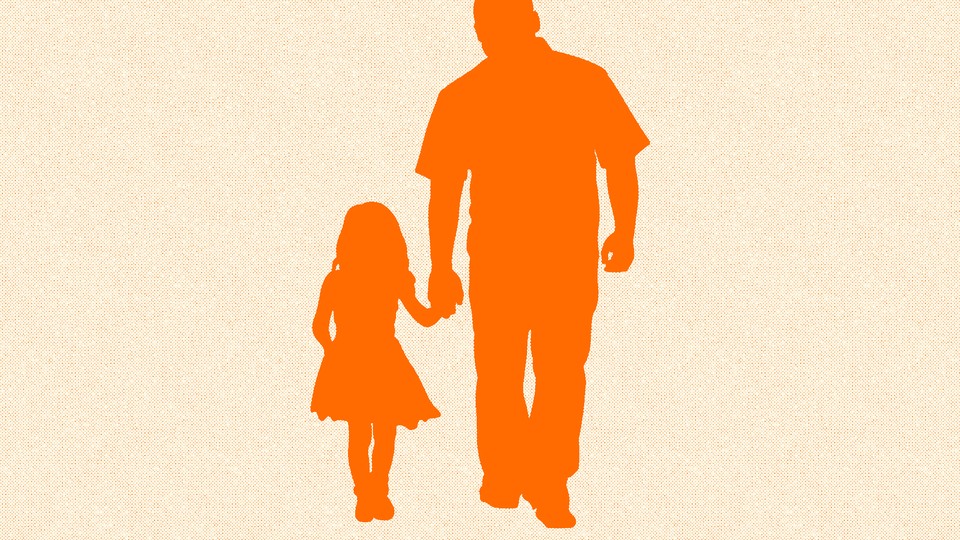What Children Remember About Their Fathers
3 min read
This is an edition of Time-Travel Thursdays, a journey through The Atlantic’s archives to contextualize the present and surface delightful treasures. Sign up here.
Father’s Day looks different for each family. For some, it is a moment to celebrate the dad(s) in your life and let them know how much you appreciate them. Maybe it’s with a homemade card, or pancakes, or an afternoon in which a dad is allowed to take a nap and watch replays of the 1998 NBA finals uninterrupted. But the day can also be steeped in mourning, as the loss of a father, or father figure, is felt more acutely and the memories of that person can come bubbling to the surface.
In The Atlantic’s archives, you can see these themes playing out across time. I found myself deeply moved by the connections between a March 1950 essay by Virginia Woolf about her father, Leslie Stephen, and a January 2024 essay by my colleague Ross Andersen, about his father, Erik Dybkaer Andersen.
Both essays are posthumous meditations on who their fathers were, providing insights into how these men made their way in the world through the eyes of their children. Woolf remembered how her father “would twist a sheet of paper beneath a pair of scissors and out would drop an elephant, a stag, or a monkey with trunks, horns, and tails delicately and exactly formed,” and how he would take a pencil and “draw beast after beast — an art that he practised almost unconsciously as he read, so that the fly-leaves of his books swarm with owls and donkeys.”
Ross recalled the day his father “mounted a basketball hoop over our driveway and put a Ping-Pong table in the garage. No matter the game and no matter your age, he wanted to beat you with every atom of his being.” His father was also a talkative person, and Ross “would blush when he invited himself to join strangers’ conversations at neighboring tables by making unsolicited jokes about whatever they were discussing.”
My children are 7 and 5 years old. Reading these stories left me wondering what my children will remember about me when I am gone. Will it be that I pretend every shot I take playing soccer at our park is the last penalty of a World Cup final? Will it be my terrible moves during our Friday-night dance parties? Will it be the counter full of spilled cinnamon as I try to perfect my weekend French-toast recipe? Or will it be something quotidian and unremarkable that has glued itself to my children’s consciousness? Ross’s and Woolf’s stories are reminders that the memories my children retain are not up to me, and may also include moments I’m not proud of, but I hope they’ll always remember that I did my best.
A Reading List
Here’s a collection of stories on fatherhood through the years:
- “My Father: Leslie Stephen”: In 1950, Virginia Woolf remembered her late father as a “delightful host” who gave her “unrestricted freedom” and access to his extensive library.
- “My Father, the Giant”: After Ross Andersen’s father died earlier this year, he wrote that his father’s “life’s work was caring for the people he loved.”
- “The Father-Son Talk I Never Expected to Have”: Garth Risk Hallberg almost never spoke about his past as an addict—until adolescence came for his son.
- “Vigilance”: In 1997, Meg Cimino recalled all the ways her father tried to protect her as she grew up. “What’s a dad to do in a world of sharp corners?”
- “To a Daughter, One Year Lost”: In 1941, an unnamed father published a letter to his daughter a year after her disappearance. “Surely you will not recoil from knowing just this: that simply, humanly, sorely, I miss you.”



